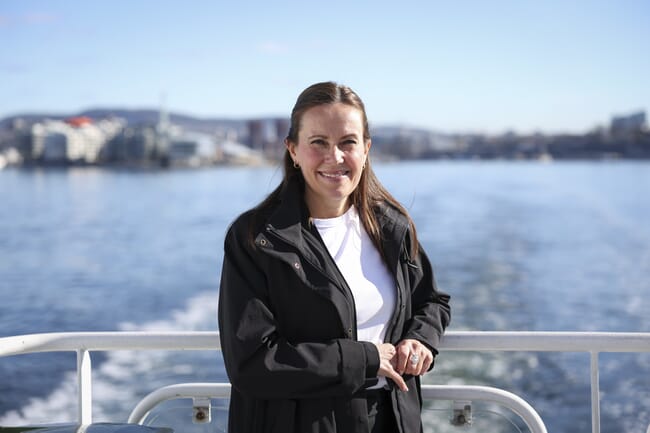
© NFD / David Berg
The amendments allow for the allocation of larger areas, together with an obligation to prepare a plan for the establishment, development, operation and closure of offshore aquaculture within the areas allocated.
“This will ensure biosecure and sustainable development of the areas opened up for the new activity. By allocating larger areas, we are also facilitating industrial development and the basis for establishing infrastructure for offshore aquaculture,” said Marianne Sivertsen Næss, Minister of Fisheries and the Oceans, in a press release.
Under the current regulations, allocations are granted for individual sites. The proposed changes would enable the allocation of larger zones, placing responsibility on operators to develop them with a longer-term strategic outlook.
Within each area that is allocated, the actors must create comprehensive plans with good location structures, primarily to ensure biosecure operation of the areas.‘’Offshore aquaculture is a great opportunity for sustainable food production in Norwegian sea areas, and it requires a great deal of regulatory development to facilitate this. The proposal is another milestone in this work, and I am very pleased to be able to send new signals to the actors who I know are working strategically and purposefully to participate in this new opportunity in our sea areas,’’ added Sivertsen Næss.
Developing offshore aquaculture will require building an entirely new infrastructure — including smolt production facilities, well boats and other specialized vessels for offshore operations, as well as appropriate construction technologies and systems for transporting farmed fish.
Allocating larger areas gives operators the flexibility to plan for phased, long-term development, while also requiring them to demonstrate that their projects are sustainable. This should be organized through an area plan where the actor must take into account all relevant authority requirements as the project matures.
Knowledge obtained through the projects should be included in the plans and provide a basis for a good site structure, which also takes into account coexistence with other activities in the sea. In this way, the area plans will provide a solid basis for dialogue and knowledge exchange with the authorities and other stakeholders operating at sea.
Necessary expertise
Offshore aquaculture will require a high level of expertise. Therefore, this consultation will propose some thematically overarching competence requirements that must be met before an actor can participate in the competition for the allocation of an area. The requirements will be further specified in the regulations that set out the rules for the competition. The Ministry has started the study of an area allocation regulation, which will be the next milestone in the work on the allocation regulations for offshore aquaculture.
‘’The consultation is open to everyone and I hope we will receive a lot of good consultation input,’’ said Sivertsen Næss.
The consultation deadline is 17 September.



